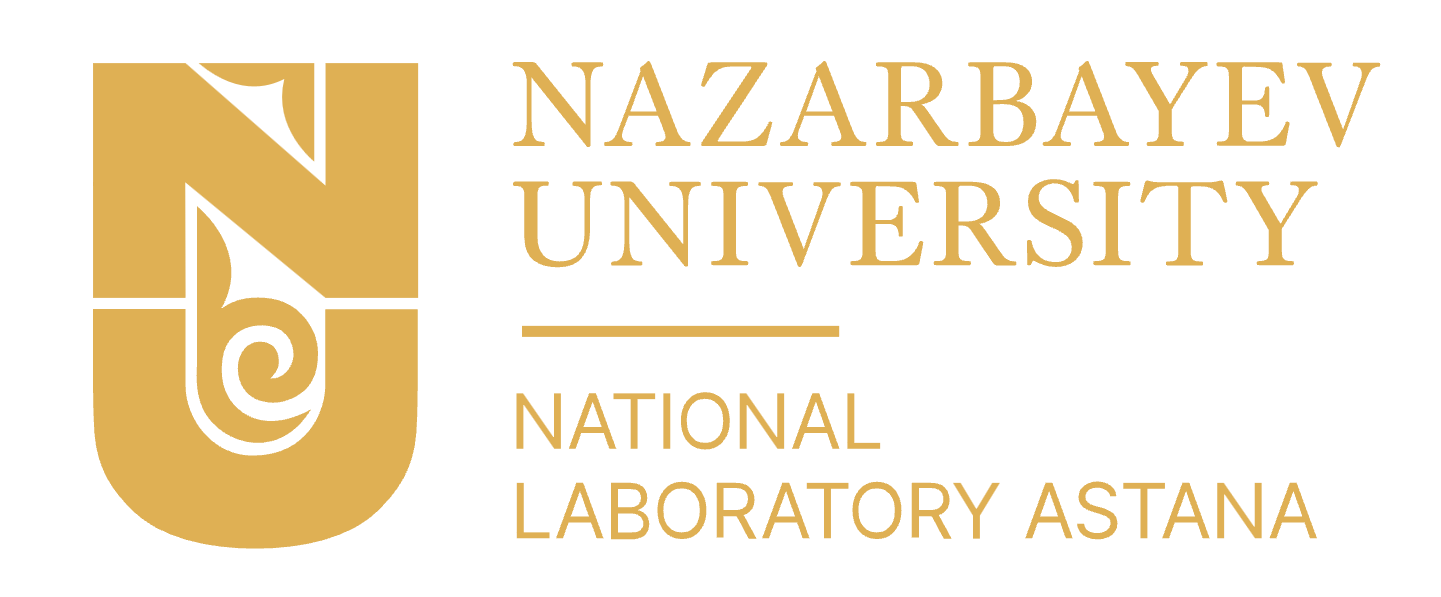Program-Targeted Funding
The program is designed to address one of the most critical challenges in Kazakhstan’s healthcare system—cardiovascular disease (CVD). CVD remains a major concern in the country, contributing significantly to both high mortality and disability rates among the population.
The scientific impact of the Program lies in generating new insights into the mechanisms and pathways of cardiovascular disease (CVD) development. These findings will form the foundation for developing methodological approaches to early diagnosis, prediction, prevention, and personalized treatment. Additionally, the Program aims to create innovative data analysis methods, aligning with the "Kazakhstan-2050" strategy and the National Development Plan of the Republic of Kazakhstan through 2025.
The primary goal of the Program is to enhance the diagnosis and treatment of cardiovascular diseases in Kazakhstan by introducing metabolic correction using glucagon-like peptide-1 (GLP-1) based therapies.
We aim to achieve the following by the end of the program:
- To determine the molecular and genetic characteristics of cardiovascular diseases (CVD) in the Republic of Kazakhstan through genomic profiling.
- To develop and optimize bioinformatic methods for analyzing NGS and TGS data to identify structural genomic variants in patients with cardiovascular diseases.
- To evaluate the mutational load in Kazakhstani patients with cardiomyopathy, cardiac arrhythmias, and hereditary cardiac syndromes (channelopathies).
- To assess the effectiveness of glucagon-like peptide-1 (GLP-1) receptor agonists in patients with various forms of cardiovascular disease through clinical research.
- To identify molecular and biological markers of metabolic and bioregulatory dysfunctions in patients treated with GLP-1 receptor agonists.
- To determine subgroups of cardiovascular patients for whom metabolic correction with GLP-1 receptor agonists is most effective in improving cardiovascular function.
- A clinical trial protocol has been developed, including clearly defined patient selection criteria and inclusion/exclusion parameters.
- Recruitment of study participants is underway; data collection and blood sample acquisition are in progress.
- Bioinformatic analysis of second- and third-generation sequencing data (NGS, TGS) is being optimized to identify structural variants in the genomes of patients with cardiovascular diseases.
- Genetic studies—including targeted sequencing as well as whole-genome and whole-exome sequencing—are being conducted in patients with CVD
Utilizing second- and third-generation sequencing technologies (NGS, TGS).
Developing recommendations for the diagnosis and treatment of cardiovascular diseases through metabolic correction using GLP-1–based therapies.



- Ainur R. AkilzhanovaMD, PhD, Head of the Laboratory of genomic and personalized medicine, PI “National Laboratory Astana”ORCID: 0000-0001-6161-8355
- Dos SarbassovPrincipal investigator, PhD, General Director, PI “National Laboratory Astana”ORCID: 0000-0002-6848-1133
- Ulan А. Kozhamkulov– PhD, Leading researcher, Laboratory of genomic and personalized medicine, PI “National Laboratory Astana”ORCID: 0000-0002-9782-7631
- Saule Ye. RakhimovaPhD, Leading researcher, Laboratory of genomic and personalized medicine, PI “National Laboratory Astana”ORCID ID: 0000-0002-8245-2400
- Dauren A. YerezhepovPhD, Leading researcher, Laboratory of genomic and personalized medicine, PI “National Laboratory Astana”ORCID: 0000-0002-4161-1348
- Dr. Ulykbek KairovLeading Researcher, Head of Laboratory of Bioinformatics and Systems Biology, NLAORCID: 0000-0001-8511-8064
- Akbota M. AitkulovaPhD in Biology, researcher at the Laboratory of Genomic and Personalized MedicineORCID: 0000-0001-5016-0932
- Dr. Almagul KushugulovaHead of the Laboratory of Microbiome, NLAORCID: 0000-0001-9479-0899
- Bakytgul А. YermekbayevaMD, Leading researcher, Laboratory of drag design and development, PI “National Laboratory Astana”ORCID: 0000-0003-1407-6332
- Dinara А. BegimbetovaPhD, Leading researcher, Laboratory of molecular oncology, PI “National Laboratory Astana”ORCID: 0000-0002-0643-6257
- Diana SamatkyzyResearcher, Laboratory of genomic and personalized medicine, PI “National Laboratory Astana"ORCID: 0000-0001-8129-6218
- Ainur AkhmetovaMSc, National Laboratory Astana, Laboratory of Genomic and Personnelized MedicineORCID: 0000-0002-5557-3338
- Abilova ZhannurMaster of National Laboratory Astana, Laboratory of Genomic and Personalized MedicineORCID: 0009-0005-3616-5661
- Zhalbinova MadinaPhD “National Laboratory Astana”, Laboratory of Genomic and Personnelized MedicineORCID: 0000-0001-9704-8913
- Nazerke SatvaldinaMSc, Associate ResearcherORCID: 0000-0002-0611-4485
- Ayaulym ChamoyevaMSc, National Laboratory Astana, Laboratory of Genomic and Personnelized Medicine, Research AssistantORCID: 0000-0003-0877-3537
- Gabdulkayum AidanaMaster's student of National Laboratory Astana, Laboratory of Genomic and Personalized Medicine, Research AssistantORCID: 0000-0003-1551-3637
- Tomiris B. KadenovaResearch assistant, Laboratory of genomic and personalized medicine, PI “National Laboratory Astana”ORCID: 0009-0004-9064-2273
- Shakhmarova TomirisBachelor of CSU “National Laboratory Astana”, Laboratory of Genomic and Personalized MedicineORCID: 0009-0008-6884-3908
- Mirmanova JanelBachelor of CSU “National Laboratory Astana”, Laboratory of Genomic and Personalized Medicine, Research AssistantORCID: 0000-0002-0284-3891
- Asset DaniyarovResearcher, NLAORCID: 0000-0003-2339-5204
- Kuanysh ZhaparResearcher, NLA
- Rassul ShokenovResearcher, NLAORCID: 0009-0007-2867-3126
- Оmirgul BakenovaResearcher, NLAORCID: 0009-0009-9825-1513
- Chamoieva, A.E.; Mirmanova, Z.Z.; Zhalbinova, M.R.; Rakhimova, S.E.; Daniyarov, A.Z.; Kairov, U.Y.; Baigalkanova, A.I.; Mukarov, M.A.; Bekbossynova, M.S.; Akilzhanova, A.R. Targeted NGS Revealed Pathogenic Mutation in a 13-Year-Old Patient with Homozygous Familial Hypercholesterolemia: A Case Report // // International Journal of Molecular Sciences. – 2024. – Vol. 25, 11882. https://doi.org/10.3390/ijms252211882 (IF – 4.9; Web of Science - Q1, Scopus – 90%).
- Madina R. Zhalbinova, Saule E. Rakhimova, Ulan A. Kozhamkulov, Kenes R. Akilzhanov, Nurlan K. Shaimardanov, Gulbanu A. Akilzhanova, Joseph H. Lee, Yuriy V. Pya, Makhabbat S. Bekbossynova, Ainur R. Akilzhanova. The impact of genetic polymorphism on complications development in heart failure patients // Journal of Clinical Medicine. В печати. (IF – 3.0; Web of Science - Q1, Scopus – 87%).
- Shokenov R.D., Shakhmarova T.K., Mirmanova Zh.Zh., Chamoieva A.Ye., Zhalbinova M.R., Rakhimova S.E., Bekbossynova M.S., Akilzhanova A.R. Characterizing the Role of ABCG5/G8 in Sitosterolemia: Diagnostic Challenges in Differentiating from Familial Hypercholesterolemia // Science and Healthcare. 2024. Vol.26 (5), pp. 7-14. doi 10.34689/SH.2024.26.5.001.
- Akilzhanova, A.R. Act of implementation of the research project results: "Use of whole-exome next-generation sequencing (NGS) in molecular autopsy of young individuals who died from sudden cardiac death." PI, National Laboratory Astana, 2024.
- Akilzhanova, A.R. Act of implementation of the results of the research project: "Use of targeted next-generation sequencing (NGS) using a 96-gene candidate coding sequence-enriched panel and the Illumina TruSight Cardio panel (174 genes) in molecular autopsy of young individuals who died from sudden cardiac death." Principal Investigator, National Laboratory Astana, 2024.

